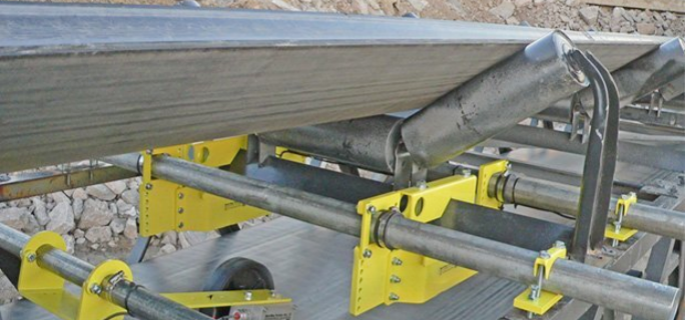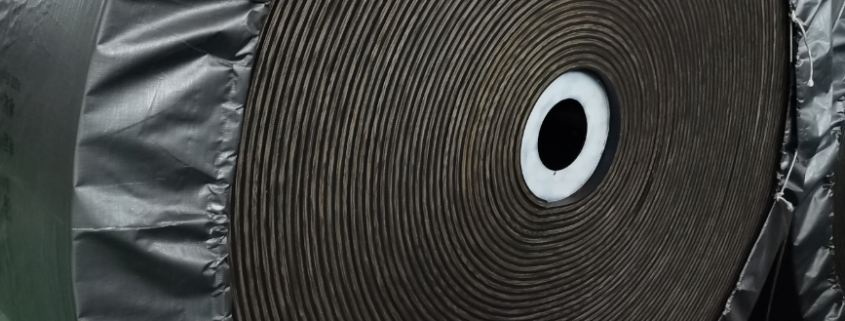In the realm of material handling, conveyor belt drive pulleys play a crucial role. These integral components drive the conveyor belt and facilitate the smooth transportation of goods. This blog post will delve into various aspects of conveyor belt drive pulleys, including their types, specifications, and dimensions, as well as how to select and calculate the appropriate pulley for your conveyor system. Understanding the functionality and importance of a conveyor belt drive pulley can significantly enhance the efficiency and longevity of your conveyor system. Whether you are looking for detailed specifications or practical calculation methods, this comprehensive guide on drive pulley conveyor belts will provide valuable insights.
Read moreConveyor belt scale calibration is essential for ensuring the accuracy and reliability of material measurement in various industrial settings.Conveyor belt scale calibration need periodic calibration; perform daily zero calibration by running an empty belt to ensure accuracy. Proper conveyor belt scale calibration allows for precise operational data, which is crucial for production decisions and maintaining efficiency. This blog post will explore the principles, methods, and importance of conveyor belt scale calibration, providing a comprehensive guide for industry professionals. By understanding the intricacies of conveyor belt scale calibration, you can enhance measurement accuracy, optimize operational processes, and ensure compliance with industry standards. Regular and accurate conveyor belt scale calibration is vital for maintaining the integrity of your weighing systems and ensuring seamless production workflows.
Read moreConveyor belt bulk material handling is a critical aspect of many industrial processes. Conveyor belts play a vital role in efficiently transporting large volumes of materials across various stages of production. This system is essential in industries such as mining, agriculture, and manufacturing, where the movement of bulk materials is a constant requirement. Conveyor belt bulk material handling involves using belts to move materials horizontally or vertically within a facility. These belts are designed to handle a wide range of materials, from fine powders to large, abrasive rocks. The efficiency and reliability of conveyor belt bulk material handling systems help reduce manual labor, increase productivity, and enhance workplace safety.
Read moreThe magnetic pulley belt conveyor is a revolutionary system in material handling and separation processes. This advanced conveyor technology integrates magnetic pulleys into standard belt conveyors, enhancing their capability to separate ferrous materials from non-ferrous materials efficiently. The significance of magnetic pulley belt conveyors lies in their ability to streamline operations, reduce the risk of damage to downstream equipment, and improve overall productivity. By effectively removing unwanted metal contaminants, these conveyors play a crucial role in maintaining product quality and safety across various industries, including recycling, mining, and food processing. The integration of magnetic pulleys into belt conveyors represents a significant advancement in conveying and separation technology.
Read moreConveyor belts are essential components in various industries, streamlining processes and enhancing efficiency. They are used for transporting materials, products, and equipment across manufacturing lines, warehouses, and other facilities. Among the different types of conveyor belts, nylon conveyor belts are particularly popular due to their durability, flexibility, and resistance to wear and tear. The nylon conveyor belt price is a key consideration for businesses looking to invest in reliable and cost-effective material handling solutions. In India, the demand for nylon conveyor belts is high, driven by the country’s growing industrial sector and the need for efficient transportation systems.
Read moreUnderstanding the necessity for bulk material handling in modern industries is crucial for enhancing operational efficiency. Belt conveyors for bulk materials play a pivotal role in this process by facilitating the smooth and efficient movement of large quantities of materials. These conveyors are integral to industries such as mining, agriculture, and manufacturing, where the handling of bulk materials is a daily necessity. Belt conveyors for bulk materials are designed to transport items over long distances, reduce labor costs, and minimize the risk of material damage. Their significance lies in their ability to improve productivity, ensure safety, and provide a cost-effective solution for bulk material handling needs.
Read moreConveyor belts play a crucial role in various industries, ensuring the smooth and efficient movement of materials across production lines and other operations. They are essential in sectors such as manufacturing, mining, and logistics, facilitating seamless processes and enhancing productivity. The Indian market has emerged as a significant player in the global conveyor belt industry, driven by rapid industrialization and economic growth. Understanding the conveyor belt price in India is vital for businesses looking to invest in these systems, as it impacts budgeting and procurement strategies. This section delves into the factors influencing the conveyor belt price in India and its implications for different industries.
Read moreConveyor belt pulleys are crucial components in bulk material handling systems, enabling the efficient movement of materials over long distances. The design of these pulleys involves a high degree of complexity and technical precision, as they must withstand significant operational demands and environmental conditions. Properly designed pulleys ensure the reliability and longevity of conveyor systems, minimizing downtime and maintenance costs. This blog post aims to provide a foundational understanding of conveyor belt pulley design, covering essential principles, key considerations, and advanced techniques. By the end of this belt conveyor design guide, readers will gain valuable insights into the intricacies of designing conveyor belt pulleys, enhancing their knowledge and application in real-world scenarios.
Read moreConveyor belt pulley sizes play a crucial role in the efficiency and functionality of industrial conveyor systems. These pulleys are integral components that drive the belts, enabling the movement of materials across various stages of production. Proper sizing of conveyor belt pulleys ensures optimal performance, reducing wear and tear on the belt, minimizing downtime, and enhancing the overall efficiency of the system. Incorrect pulley sizes can lead to belt slippage, increased energy consumption, and potential system failures. Understanding and selecting the right conveyor belt pulley sizes is essential for maintaining smooth operations and achieving maximum productivity in industrial applications. This guide will delve into the importance of these sizes and how they impact your conveyor systems.
Read moreConveyor belts play a vital role in numerous industries, facilitating the efficient movement of materials over various distances. From mining to manufacturing, these belts are integral to operational success. Among the different types of conveyor belts, steel cord conveyor belts are particularly valued for their strength and durability. However, the performance and lifespan of these belts largely depend on the quality of their splicing. The steel cord conveyor belt splicing procedure is a critical process that ensures the belts can handle the demanding conditions they face. Properly executed, this procedure enhances the longevity and efficiency of the conveyor system, preventing costly downtimes and maintaining smooth operations across industries.
Read moreContact us
No. 11, Bocheng Street, Boye County, Baoding City, Hebei Province, China
+86 13803289191
NEWS
 How a Multi Ply Conveyor Belt Enhances EfficiencyJune 18, 2024 -
How a Multi Ply Conveyor Belt Enhances EfficiencyJune 18, 2024 - What is Conveyor Belt Ply and Conveyor Belt Ply AdhesionJune 18, 2024 -
What is Conveyor Belt Ply and Conveyor Belt Ply AdhesionJune 18, 2024 - Necessary Cold Resistant Conveyor BeltJune 18, 2024 -
Necessary Cold Resistant Conveyor BeltJune 18, 2024 -









